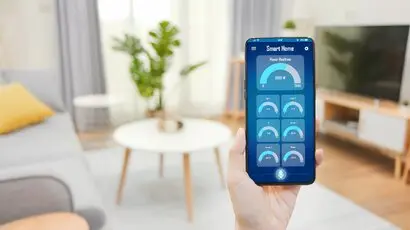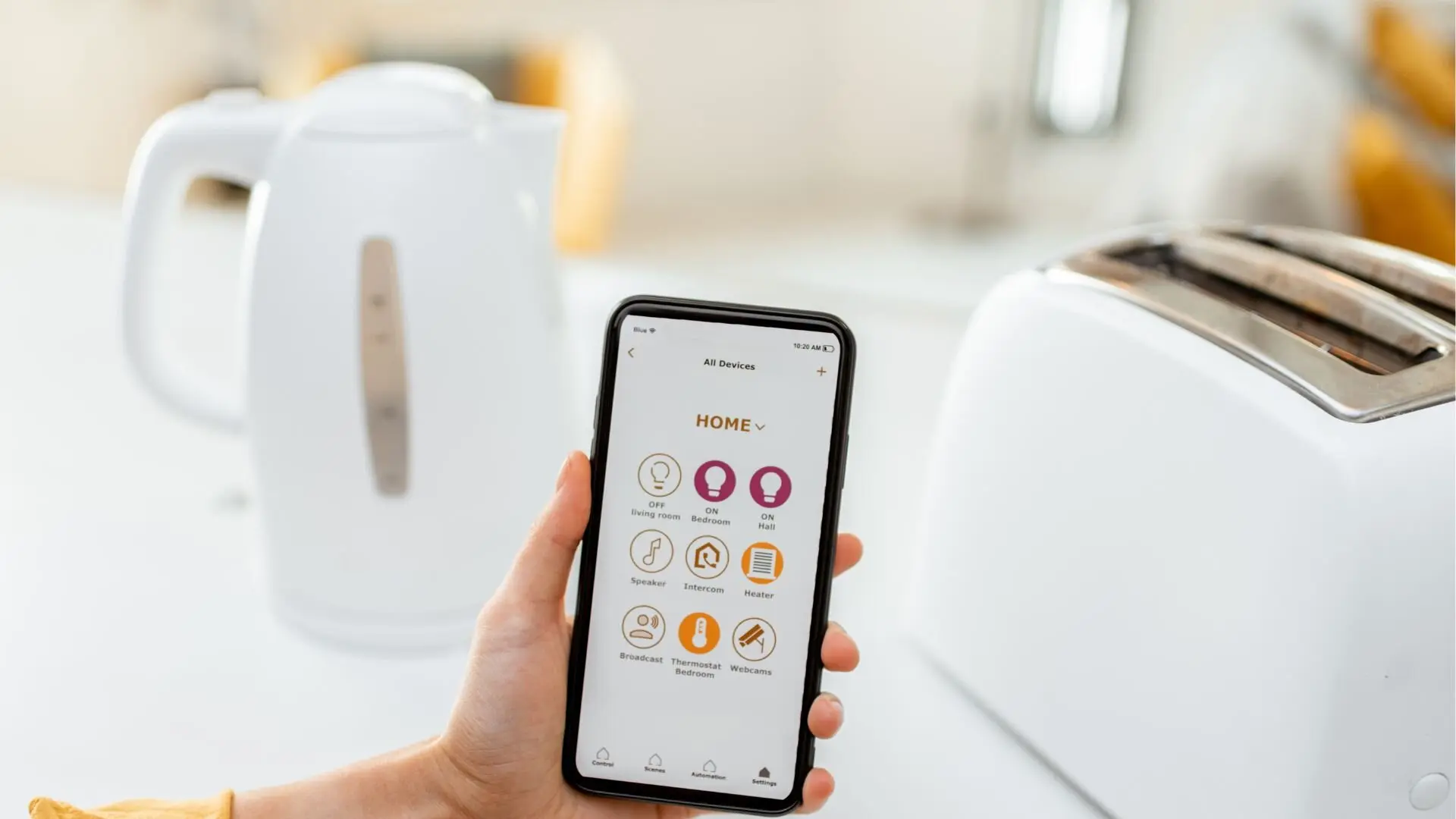
Get your free Melbourne Electrician quote today!
Our team of Melbourne Electricians is here to help you with any questions or concerns you may have. We’re committed to providing you with the best possible service and support.
Stay ahead with the latest smart home electrical trends. Discover innovative solutions designed to enhance your home’s comfort, energy efficiency, and security, and learn how to implement them seamlessly.
Even as economic challenges arise, Australians are eagerly adopting smart home technologies. More than7.5 million homes now feature at least one smart device, with about 24 gadgets hooked up on average in each household.
The Telsyte Australian Smart Home Market Study 2023 suggests that the market will surpass $2.5 billion, spurred by demands for energy efficiency, security, and breakthroughs in generative AI.
Smart home technology is revolutionising how we live, making everyday tasks easier and more efficient. These innovations, whether in managing lighting, appliances, or optimising energy consumption, bring unmatched convenience and sustainability to our daily lives.
As we journey through 2024 and beyond, electrical trends are swiftly evolving, incorporating state-of-the-art technology and AI to reshape how we engage with our homes. This transformation paves the way for delving into the future of our living environments.
Energy-Efficient Innovations
In Australia, smart home technology is significantly changing the landscape of sustainable living. Let’s take a closer look at some of the most recent advancements:
AI-Driven Energy Management
AI-driven systems optimise power usage by learning household habits and adjusting consumption accordingly, helping to reduce waste and lower bills.
Smart Thermostats and Lighting
Devices like the Nest Learning Thermostat adjust heating and cooling based on occupancy and preferences.
Smart lighting systems, such as Philips Hue, allow remote control and automation, ensuring lights are used only when needed.
Solar Integration
Solar panels with smart inverters maximise energy efficiency. Tesla’s Powerwall stores solar energy for use during the night, promoting energy independence.
Water-Saving Devices
Smart irrigation systems adjust watering schedules based on weather and soil conditions, conserving water resources.
These innovations play a crucial role in sustainable living by cutting down reliance on non-renewable energy sources and significantly lowering carbon footprints.
Smart Lighting Solutions
In 2024, smart lighting has advanced significantly, enhancing convenience and energy efficiency. Here’s a look at the latest options:

The latest smart appliances are transforming daily life by introducing advanced features and automation.
In kitchens, smart refrigerators like the Samsung Family Hub offer touchscreen interfaces, inventory tracking, and meal-planning suggestions. Ovens and microwaves now come with voice control and pre-programmed recipes, ensuring perfect results every time.
In the laundry room, smart washing machines and dryers from brands like LG and Whirlpool allow remote operation and maintenance alerts, optimising energy use and reducing wear.
Innovations
These appliances integrate with home networks, providing seamless control through smartphones or voice assistants. They can adapt to user preferences, offering personalised settings that enhance convenience.
Convenience and Time-Saving
Smart appliances save time by automating routine tasks and providing real-time updates, such as notifying when laundry is done or groceries need restocking. This technology streamlines household management, allowing more focus on what truly matters.
Embrace the Future with WP Electrical
Embracing smart home trends goes beyond just adopting the latest technologies; it’s about elevating your lifestyle with added convenience, efficiency, and sustainability. Thanks to advancements in smart appliances, security systems, and climate control, your home can become a centre of innovation and comfort.
These technologies not only simplify daily tasks but also contribute to a greener environment by optimising energy use. By integrating smart solutions, you can enjoy a seamless, connected experience that transforms the way you live.
WP Electrical is here to assist with all your smart home andgeneral electrical services. Our team is dedicated to providing expert advice and cutting-edge solutions tailored to your needs. With a commitment to innovation and quality, WP Electrical ensures that your home is equipped with the latest trends of 2024.Contact us today to transform your home and experience the future of living with confidence and ease.
Published by: Pascal Harb17 October 2025